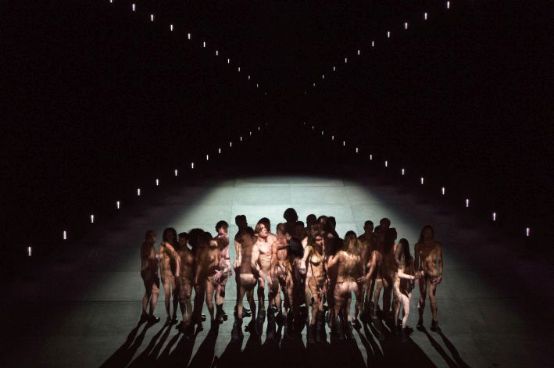The gender of power
On the 400th anniversary of his death, Shakespeare is everywhere. As in Basel and Zurich, new productions of Verdi's "Macbeth" are therefore booming. An occasion for an examination of gender roles in this opera, which leaves the cliché of the destruction of terminally ill women in Verdi operas far behind.

The key passage is found in the middle of the opera. In the supernatural, spectacular third act, the last in a series of silent ghosts of past kings, the army commander Banco appears. Killed by him and never king himself, he holds up the mirror of power to Macbeth with a grin: Banco sees in him not only himself, but the extension of himself into the future; the continuation of his power in his descendants. The glass does not reflect the outer body, but refers to the ruling body, which exists independently of physical presence. If Macbeth were to look in the mirror, he would remain blind: the childless murderer would see himself without a future, his deeds would be condemned to transience, his power to destruction.
Inside view and outside view
In Banco's mirror, the course of the plot is also reversed, with the build-up of power turning into a decline in power. But the opera is also characterized by the view into the mirror, because the central question is: what is visible on the outside, what remains an inner view, what is "real", what is "delusion". This refers not only to sounds - such as the bell that seems to incite Macbeth to commit murder, or the voices of the witches and ghosts - but also to visibility: Who actually sees them, the ghosts of the murdered, the blood on the hands of the murderers and, last but not least, the first protagonists of the opera, the witches:
"Who are you? From this world
or other spheres?
I am forbidden to call you women
your dirty beard."
These words by Banco already make it clear at the beginning that the power of the witches also lies in their intersexuality, which emphasizes their otherworldliness. Lady Macbeth also stands between the sexes, whose thirst for power makes her look contemptuously at her initially hesitant husband and his feelings of guilt. And this role is also reversed in Banco's mirror: after looking into the future, Macbeth is unscrupulously confident of victory and the Lady perishes from her feelings of guilt in a sleepwalking delusion. As Freud has already described in Shakespeare, the couple appears as a complementary unit with flexible gender role attributions.








